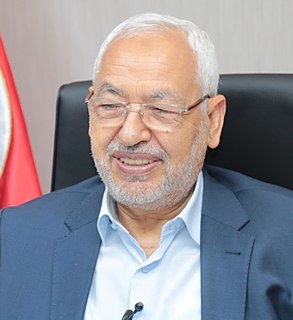A Quote by Petra Kelly
The vision I see is not only a movement of direct democracy, of self- and co-determination and non-violence, but a movement in which politics means the power to love and the power to feel united on the spaceship Earth... In a world struggling in violence and dishonesty, the further development of non-violence - not only as a philosophy but as a way of life, as a force on the streets, in the market squares, outside the missile bases, inside the chemical plants and inside the war industry - becomes one of the most urgent priorities.
Quote Topics
Bases
Becomes
Chemical
Democracy
Determination
Development
Direct
Direct Democracy
Dishonesty
Earth
Feel
Force
Further
Industry
Inside
Life
Love
Market
Means
Missile
Most
Movement
Non-Violence
Only
Outside
Philosophy
Plants
Politics
Power
Priorities
See
Self
Spaceship
Squares
Streets
Struggling
To Love
United
Urgent
Violence
Vision
War
Way
Which
World
Related Quotes
Some people draw a comforting distinction between force and violence. I refuse to cloud the issue by such word-play. The power which establishes a state is violence; the power which maintains it is violence; the power which eventually overthrows it is violence. Call an elephant a rabbit only if it gives you comfort to feel that you are about to be trampled to death by a rabbit.
The science of war leads one to dictatorship, pure and simple. The science of non-violence alone can lead one to pure democracy. Power based on love is thousand times more effective and permanent than power derived from fear of punishment. It is a blasphemy to say non-violence can be practiced only by individuals and never by nations which are composed of individuals. The nearest approach to purest anarchy would be a democracy based on non-violence. A society organized and run on the basis of complete non-violence would be the purest anarchy.
We must realize that violence is not confined to physical violence. Fear is violence, caste discrimination is violence, exploitation of others, however subtle, is violence, segregation is violence, thinking ill of others and condemning others are violence. In order to reduce individual acts of physical violence, we must work to eliminate violence at all levels, mental, verbal, personal, and social, including violence to animals, plants, and all other forms of life.
Capitalism, in my estimation, is not about democracy. I think we're beginning to see an understanding of this. We see it in the Black Lives Matter movement. We see it among black youth who are now struggling and trying to make connections internationally with other groups and trying to figure out what's going on in the world and the ways things like police violence and systemic violence all come together under neoliberalism.
Non-violence is a very powerful weapon. Most people don't understand the power of non-violence and tend to be amazed by the whole idea. Those who have been involved in bringing about change and see the difference between violence and non-violence are firmly committed to a lifetime of non-violence, not because it is easy or because it is cowardly, but because it is an effective and very powerful way.
All violence is injustice. Responding to violence with violence is injustice, not only to the other person but also to oneself. Responding to violence with violence resolves nothing; it only escalates violence, anger and hatred. It is only with compassion that we can embrace and disintegrate violence. This is true in relationships between individuals as well as in relationships between nations.
I'm so sick of seeing guns in movies, and all this violence; and if there was going to be violence in Pines, I wanted it to actually be narrative violence. I wasn't interested in fetishizing violence in any way of making it feel cool or slow-motion violence. I wanted it to be just violence that affected the story.
I must remind you that starving a child is violence. Suppressing a culture is violence. Neglecting school children is violence. Punishing a mother and her family is violence. Discrimination against a working man is violence. Ghetto housing is violence. Ignoring medical need is violence. Contempt for poverty is violence.
The television screen is the lens through which most children learn about violence. Through the magnifying power of this lens, their everyday life becomes suffused by images of shootings, family violence, gang warfare, kidnappings, and everything else that contributes to violence in our society. It shapes their experiences long before they have had the opportunity to consent to such shaping or developed the ability to cope adequately with this knowledge.
Marginalized youth, workers, artists and others are raising serious questions about the violence of inequality and the social order that legitimates it. They are calling for a redistribution of wealth and power - not within the old system, but in a new one in which democracy becomes more than a slogan or a legitimation for authoritarianism and state violence.
My main aim in 'Gandhi' was to project him as the vanguard of non-violence. Nowhere in the world has a movement of non-cooperation sans violence received so much support from masses as Gandhi's movement in India did. He was, to a great extent, responsible for freeing his nation from the British Raj.






























